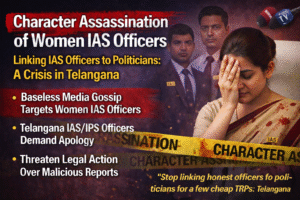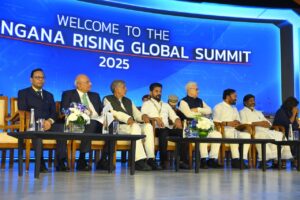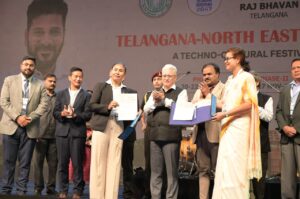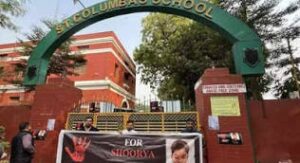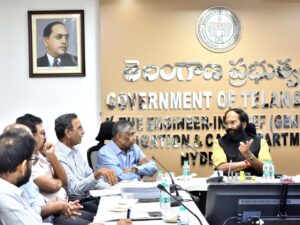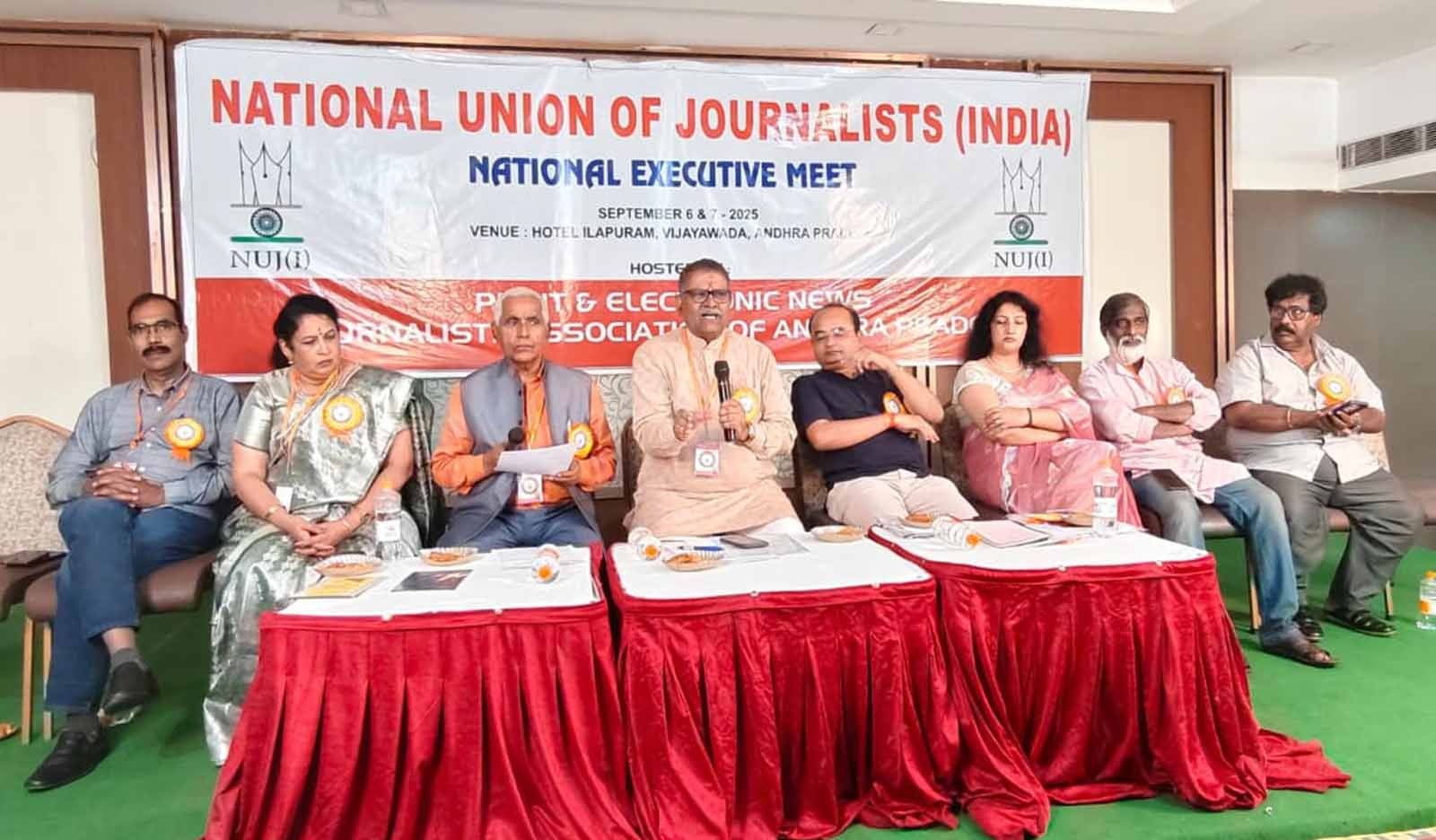
National Union of Journalists (India) holds Vijayawada meet; calls for constitutional clarity on media freedom, highlights challenges to press access, and stresses mission-driven, responsible journalism.
Vijayawada, Andhra Pradesh: NUJ(I) president Suresh Sharma has urged the Central Government to amend Article 19(1)(A) of the Constitution to define media’s freedom of expression separately from that of individuals. Speaking at the national executive committee meeting of the National Union of Journalists (India) in Vijayawada, Sharma said that while freedom of expression is a fundamental right for citizens, media has a distinct role in amplifying the voices of others. Unless this distinction is recognized in law, he argued, the very idea of press freedom will remain incomplete.
Sharma strongly criticized the practice of restricting journalists’ entry into central and state secretariats, calling it a violation of democratic traditions. He reminded that leaders from Pandit Nehru to Atal Bihari Vajpayee had been staunch defenders of press freedom, and today’s restrictions weaken both democracy and journalism.
NUJ(I) General Secretary Triyug Narayan Tiwari echoed the call, stressing that journalism must once again become a mission. “Democracy needs real journalism today. The task is not merely to attract attention to issues, but to take people’s problems to government and administration and seek solutions,” he said. Tiwari expressed concern that in several states, reporters are harassed with cases of “obstruction of government work” whenever they expose corruption or misuse of power.
A key resolution was passed at the meeting, originally presented by senior journalist Umesh Chaturvedi and supported by Bihar journalist Rakesh Praveer. After an open debate and intervention from UP unit president Sarvesh Kumar Singh, the proposal was adopted, despite initial opposition from some delegates. The resolution called for explicitly defining media’s freedom of expression as distinct from individual freedom under Article 19(1)(A).
The conference also discussed the growing difficulties faced by journalists in news gathering, pointing out that even the Right to Information Act has lost much of its effectiveness in practice. Several other demands were raised, including the formation of a new wage board to revise pay scales, the creation of a Media Commission and Media Council, restoration of railway concessions, exemption from toll taxes, exclusion of the media sector from GST, and relief from restrictive RNI and DAVP circulars.
Special sessions focused on women journalists’ challenges. Abha Nigam, head of the women’s cell, pledged a nationwide campaign to promote safe and dignified working conditions, while Kavita Raj presented practical suggestions for addressing gender-specific concerns.
Former NUJ(I) president Ashok Malik emphasized strengthening the organization to protect journalists more effectively. Veteran journalist Rajeev Shukla advised patience and perseverance in the profession, while Ravindra Vajpeyi underlined the importance of inter-state news exchange to build a national perspective on press issues. Senior leader Sri Nageshwar Rao of NUJ(I) also participated in the deliberations, and Organizing Secretary Purushotham Naragouni was present along with other national office-bearers.
Adding significance to the occasion, Smt. Tella Kasturi, Regional Joint Director, Information and Public Relations Department, Government of Telangana, attended as the chief guest. In her address, she underlined the importance of freedom of the press and called for responsible journalism that strengthens democracy. She also felicitated journalists and participants, acknowledging their role in safeguarding public interest through ethical reporting.
The gathering reflected wide national participation. Odisha president Sri Kailash Naik, Baldev Sharma of Jharkhand, Secretary (South) Chandra Mohan, and TSJU General Secretary Anil Kumar joined the deliberations. In total, nearly 90 members of the NUJ(I) National Executive Committee attended, giving the event a truly nationwide character.
The meeting was hosted by PENJAP, a leading Andhra Pradesh journalists’ body affiliated with NUJ(I). National Vice-President and PENJAP President Bade Prabhakar and his team were thanked by delegates for their efforts in organizing the conference. Journalists from several states were felicitated, and distinguished guests were honored on stage.
In closing, General Secretary Tiwari thanked all participants, and President Sharma formally declared the session concluded. Delegates suggested that future meeting venues be announced well in advance, as new railway booking rules require reservations two months prior.
The Vijayawada session ended with a strong message: India’s democracy needs an empowered press, legal clarity on media freedom, and a renewed commitment to journalism as a mission for public good.

